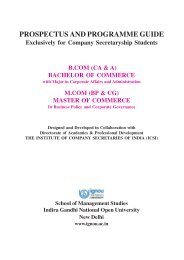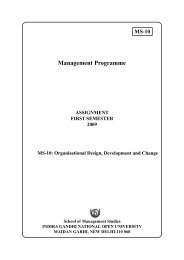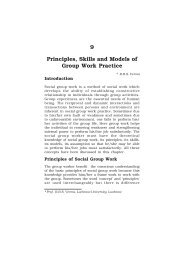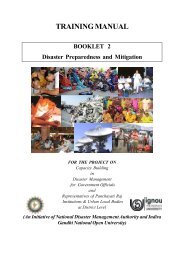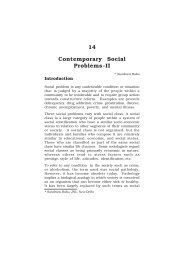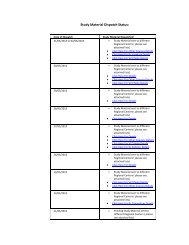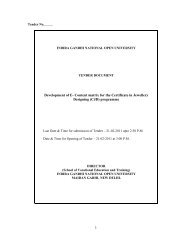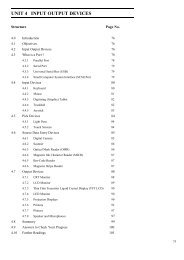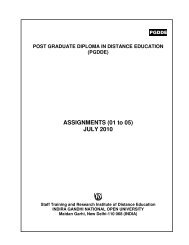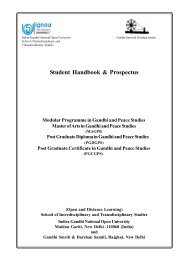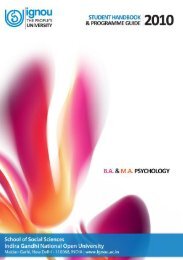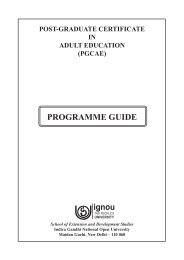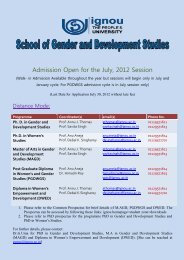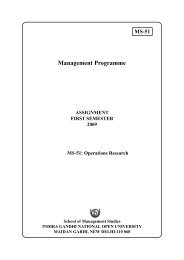cover pros - IGNOU
cover pros - IGNOU
cover pros - IGNOU
You also want an ePaper? Increase the reach of your titles
YUMPU automatically turns print PDFs into web optimized ePapers that Google loves.
developing courses and academic programmes. They are:<br />
<br />
<br />
<br />
<br />
<br />
Staff Training and Research in Distance Education (STRIDE)<br />
Centre for Extension Education (CEE)<br />
National Centre for Innovation in Distance Education (NCIDE)<br />
National Centre for Disability Studies (NCDS)<br />
Other Units/Centres of the University<br />
1.5 Academic Programmes<br />
The University offers both short-term and long-term programmes leading to Certificates, Diplomas and<br />
Degrees, which are conventional as well as innovative. Most of these programmes have been<br />
developed after an initial survey of the demand for such Programmes. They are launched with a view<br />
to fulfil the learner’s needs for:<br />
<br />
<br />
<br />
<br />
<br />
<br />
<br />
certification,<br />
improvement of skills,<br />
acquisition of professional qualifications,<br />
continuing education and professional development at work place,<br />
self-enrichment,<br />
diversification and updation of knowledge, and<br />
empowerment.<br />
1.6 Course Preparation<br />
Learning material is specially prepared by teams of experts drawn from different Universities and<br />
specialized Institutions in the area spread throughout the country as well as in-house faculty.<br />
These materials are scrutinized by the content experts, supervised by the instructors/unit designers<br />
and edited by the language experts at <strong>IGNOU</strong> before they are finally sent for printing. Similarly,<br />
audio and video cassettes are produced in consultation with the course writers, in-house faculty<br />
and producers. The material is previewed and reviewed by the faculty as well as outside experts<br />
and edited/modified, wherever necessary, before they are finally dispatched to the students, Study<br />
Centres and Telecast through Gyan Darshan.<br />
1.7 Credit System<br />
The University follows the ‘Credit System’ for most of its programmes. Each credit in our system<br />
is equivalent to 30 hours of student study comprising all learning activities (i.e. reading and<br />
comprehending the print material, listening to audio, watching video, attending counselling sessions,<br />
teleconference and writing assignment responses). Thus, a 4-credit course involves 120 hours of<br />
study. This helps the learner to know the academic effort he/she has to put in, to successfully<br />
complete a course. Completion of an academic programme (Degree or Diploma) requires successful<br />
completion of the assignments, practical projects and the term-end examination of each course<br />
in a programme.<br />
9



